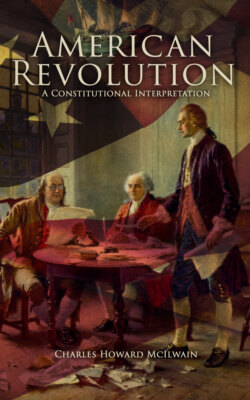Читать книгу American Revolution: A Constitutional Interpretation - Charles Howard McIlwain - Страница 3
На сайте Литреса книга снята с продажи.
PREFACE
ОглавлениеTable of Contents
This little book was finished before Political Ideas of the American Revolution, by Professor Randolph Greenfield Adams (Durham, N. G, 1922), came into my hands, hence this is my only opportunity of expressing my pleasure at the corroboration of the views set forth here by the work of another student who has reached the same general conclusion from another starting point and by a wholly different path. Professor Adams’s point of view is political; that of this essay is constitutional. I have dealt mainly with precedents; he was largely concerned with contemporary American statements of the imperial problem of the eighteenth century, and the fullness and adequacy of his treatment of the latter make me very glad I decided originally not to take them up in detail. As it happens, therefore, we have traversed ground almost entirely different, and our minor deductions vary widely; but, I take it, our main conclusions are practically identical: that the central problem of the American Revolution was the true constitution of the Empire.
I am aware, of course, that by some it is regarded as wholly idle to discuss the constitutional issues involved in the American Revolution from any point of view. Independence was inevitable if not foreordained. Had it not occurred when it did and as it did, it must have come sooner or later in some way or other. The forces of nationalism were making it inevitable long before 1774 and it is a waste of time to try to discover the particular constitutional issues on which the actual breach happened to be made. In answer to such a view, while conscious of the great importance of the nationalistic forces in our history, I can only say in general that for the “inevitable” character of historical events as a theory I have not the very highest regard; and, more specifically, that of nationalistic characteristics in the thirteen colonies making independence “inevitable” in 1774, I can see few that do not seem equally discoverable in Upper Canada about 1837. “Inevitable” results in history, like exclusively racial explanations of it, are about the last resort of the despairing historian.
Discussions with my colleagues, Professor Wilbur C. Abbott and Dr. Frederick Merk on the topics treated here have been of great service in clarifying my ideas about them, and in addition I am greatly indebted to Dr. Merk and to my wife for valuable suggestions as to the form and manner of treatment to be followed.
Cambridge, Mass.
C. H. McIlwain.
